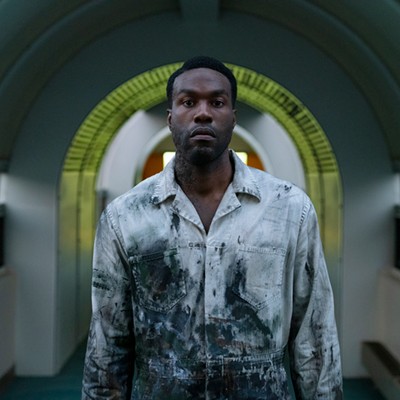For those of us who don't know New Orleans, the damage left by Hurricane Katrina is still an abstract concept. Aerial shots on the news showing roofs peering up from the stagnant floodwater surface, ant-sized people crowded on bridges, and bunched-up washes of unidentifiable, muddy debris were the only concrete evidence we had of the storm's aftermath.
And even after all the reports, profiles and charitable events held over the three years since, it's still difficult for most of us to fully process the width and depth of what was destroyed.
"Trouble the Water," a documentary screening Thursday through Saturday at the Oklahoma City Museum of Art, makes an earnest attempt to steer us away from that mainstream-media representation of New Orleans as a mass-scale deluge and push in on one family from the city's lower Ninth Ward.
Co-directors Tia Lessin and Carl Deal assemble their narrative largely from footage shot by Kimberly Rivers Roberts and her husband, Scott. The Roberts were living in a neighborhood where they both had deep roots when Katrina made landfall. The day before the hurricane arrived, Kimberly was making the local rounds with her video camera, asking her neighbors why they weren't evacuating and how they planned make it through the storm. Many, including Kimberly and Scott, didn't have the resources to get out of town, and nowhere to go even if they did. Most seem nervous but hopeful; one man responds by getting as drunk as possible, and the rest prepare for what will undoubtedly be a nasty, but hopefully not unmanageable, storm.
WORST POSSIBLE SCENARIO
Of course, as we watch the Roberts shoot footage first from their front porch, then from their upstairs bedroom, and then from their attic, it becomes clear that the worst possible scenario has come to pass.
What follows is the story of what happens to one family and its neighborhood after the flood is over. The Roberts didn't have much to begin with, and without their jobs, possessions, friends and family, they're cut loose to float like the rest of the city's detritus.
While the scenes during and immediately after the hurricane are as tense and upsetting as you would expect, the scenes documenting the Roberts' return visits to their former home are the most poignant. From finding their two dogs alive to discovering a neighbor dead in his house three weeks after the storm, the couple's emotions run the gamut from joy to despair.
While no one can deny that the Federal Emergency Management Agency dropped the ball in New Orleans, it's a point that "Trouble the Water" spends a little more time than necessary reiterating. While the government's neglect is certainly part of how things work out, spending so much time being outraged about it directs too much of the film's resources toward now-obvious, almost universally accepted political conclusions. This takes something away from the small-scale human story, which is what sets this movie apart and makes it worth watching in the first place. "Mike Robertson











